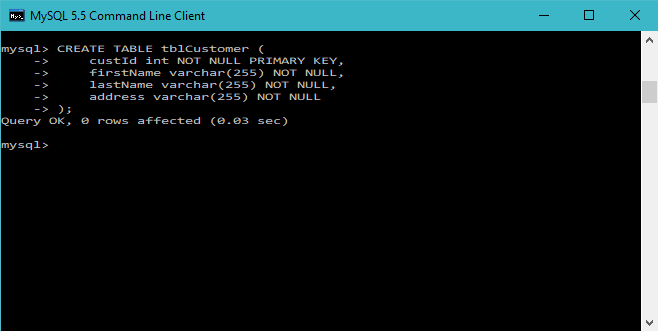MySQL PRIMARY KEY Constraint
In MySQL, PRIMARY KEY constraint is used to ensure that all values in a column are unique and cannot contain NULL values. The PRIMARY KEY constraint forces the column to always accept a UNIQUE value without NULL. In MySQL, you can have only one PRIMARY KEY constraints on each table. The PRIMARY KEY constraint can be create on single column or group of multiple columns.
MySQL PRIMARY KEY Constraint example on create table
The following MySQL, createsPRIMARY KEY on "custId" column when the "tblCustomer" table is created:
Note:
In the above example, we are creating new table called "tblCustomer" using PRIMARY KEY constraint. The PRIMARY KEY constraint enforces column "custId" to always accept UNIQUE value without NULL.
You can use MySQL Command Line Client to enforces column "custId" to always accept UNIQUE value without NULL.

MySQL PRIMARY KEY Constraint example on ALTER table
The following MySQL, createsPRIMARY KEY on existing table:
MySQL DROP a PRIMARY KEY Constraint example
The following MySQL, droppingPRIMARY KEY constraint from "tblCustomer" table: